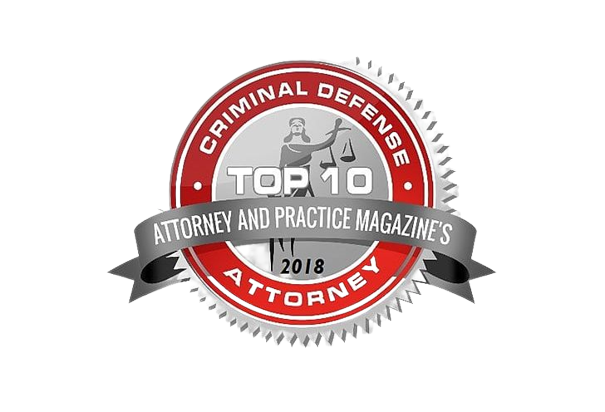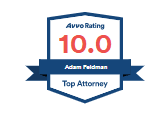Phoenix Manslaughter Lawyer
A Former Prosecutor on Your Side
Home > Manslaughter

2023 Super Lawyers

AV Preeminent Rated

Best Law Firm

A+ BBB Accredited
Are You Facing a Murder or Manslaughter Charge?
What is Homicide under Arizona Law?
In Arizona, homicide is not a separately chargeable crime; rather, it is a short-hand way of describing several offenses in which unlawful conduct results in a person’s death. There are a number of crimes which fall under the heading of homicide. It is defined in section 13-1101 of the Arizona Criminal Code as including the crimes of first degree murder, second degree murder, manslaughter and negligent homicide. Each of these offenses is distinct, not only in the elements that the state must prove, but also in the penalties, which range from a relatively short prison term, to life imprisonment and the death penalty. Note that attempted murder is covered in statutes relating to preparatory offenses, and not specifically under the homicide law. Also note that Arizona does not have a separate statute dealing with vehicular homicide; rather, the crime is subsumed within the definition of other homicide offenses.
Request Your Free Consultation
Adam Feldman Answers Questions on Homicide, Manslaughter and Murder
The following sets forth the basics of the Arizona homicide statutes:
- Negligent homicide. The definition of negligent homicide is causing the death of another person (including an unborn child) with criminal negligence. Negligent homicide is a class 4 felony. In the absence of aggravating or mitigating factors, it is punishable by a prison term of up to 3 years for a first time felony offender, with a presumptive sentence of 2.5 years. A significant issue in examining a charge of negligent homicide is whether the defendant acted with criminal negligence. Arizona law states that criminal negligence is the failure to perceive a substantial and unjustifiable risk that a particular result, in this case the death of another person, will occur, and that the failure to perceive that risk amounts to a gross deviation in the standard of care that a reasonable person would exercise in the situation. As with most criminal offenses, knowing the definitions applicable to negligent homicide, while important, does not begin to answer the question of how to defend a client charged with the crime. This takes not only skill, but experience. As a veteran criminal defense attorney and former prosecutor, Adam Feldman knows what it takes to develop a defense in a homicide case.
- Manslaughter. A charge of manslaughter can arise in a number of different contexts. It may consist of recklessly causing the death of another person; committing what would otherwise be second degree murder, as a result of a sudden quarrel or heat of passion which is in turn the result of being provoked by the victim; or intentionally aiding someone to commit suicide; or committing what would otherwise constitute second degree murder involving reckless behavior or an extreme indifference to human life, as the result of coercion through the use or threatened use of deadly physical force upon the defendant or another which a reasonable person would be unable to resist; or knowingly or recklessly causing the death of an unborn child by inflicting physical injury on the mother of the unborn child. Manslaughter is a class 2 felony, with a presumptive sentence for a first time offender of 5 years in prison. Even a cursory reading of the statute leads to more questions than answers: What is reckless behavior? What is provocation? What would a reasonable person do in the circumstances of the defendant? What is heat of passion? What is extreme indifference to human life? Experience in answering these and related questions provides the basis for a successful defense to a manslaughter charge. Reading the law will only get you so far, and no amount of book knowledge alone will do in this area. Only a highly experienced homicide attorney will be able to provide you with the expertise necessary for a successful defense.
- Second degree murder. A second degree murder charge can be based upon a number of specific circumstances, and the state of mind of the defendant is the key to understanding the nature of the offense, and what the state must prove in order to obtain a conviction. The first thing to understand is that second degree murder in Arizona is murder that is unpremeditated. It includes intentionally causing the death of another person; causing death with knowledge that the defendant’s conduct will cause death or serious injury; or recklessly causing death when the defendant’s conduct demonstrates an extreme indifference to human life. Second degree murder is a class 1 felony, with a presumptive sentence for a first time felony offender of 16 years in prison.
- First degree murder. A first degree murder conviction generally requires premeditation. In Arizona, this means that the death was the result of an act which was intended to cause the death of another person, or with knowledge that the defendant’s conduct would result in the killing of another, when the knowledge or intent exists sufficiently in advance of the act to permit reflection. Actual reflection is not required, merely time within which the defendant had the opportunity to reflect. It is distinguished from second degree murder in that an instant reaction resulting from a quarrel or heat of passion will not support a conviction for first degree murder. In addition to premeditated killing, first degree murder can also be charged if the defendant knowingly kills a police officer while the officer is acting in the line of duty. Finally, first degree murder includes acts which result in death as a consequence of certain sexual offenses, drug offenses, terrorism, drive by shootings, kidnapping, burglary, arson, robbery, escape, and unlawful flight. First degree murder involving a death occurring in the commission of one of these felonies is commonly referred to as felony murder. Note that felony murder does not require that the defendant intended to kill another human being – although the issue of intent to kill can be raised as a mitigating or aggravating factor if the death penalty is at issue, it is not an element of the crime itself. The penalty for first degree murder is death, or life imprisonment. Where the death penalty is sought by the state, the crime is referred to as capital murder. An entire series of statutes in Arizona is devoted to sentencing in capital cases, aggravating and mitigating factors, appellate review of cases in which the death penalty has been imposed, as well as the procedures for determining under what circumstances a jury may determine that the death sentence should be applied.
Do You Have Experience Defending Clients Charged with Homicide?
Adam Feldman is a veteran of a numerous successful homicide trials. The following are just a couple of examples from his distinguished record as a Phoenix homicide defense attorney. For the protection of our clients, we have not used their names.
- Example 1. Not guilty verdict – self-defense. In this case, the defendant was walking near his home, which was in a high crime neighborhood. While walking, he saw a number of individuals passing by him in a car. He recognized the occupants as armed gang members. After hearing a gun shot, the defendant drew his firearm, and fired back at the passing vehicle. His shot killed the female driver of the car, who was not one of the assailants, and may well have been an innocent party to the events. The defendant was charged with second degree murder. He asserted that his actions were justified as self-defense. The verdict was not guilty.
- Example 2. Acquitted of murder charge. This is another example of a murder charge that was precipitated by gang violence. The defendant’s son was a gang member. He (the father) witnessed members of a rival gang assaulting his son with bats. The defendant came to his son’s aid, and fired three shots at the assailants, killing one of them. The defendant was charged with second degree murder. He stated, in response to the charge, that although the other gang members were armed only with bats, he reasonably believe that absent action on his part, his son would be killed. As a result, he claimed, he had no other choice but to fire at the mob in order to save his son’s life. The justification defense prevailed, and the defendant was acquitted of the charge of murder.
Both of these cases involved the defense of justification. In one case it was self-defense, in the other it was defense of a third party (the defendant’s son). The lesson here is that whatever the facts are in a particular homicide case, the development of a defense strategy is essential, and the implementation of that strategy is an art.
Award Winning Criminal Defense








Experienced
Certain recurring concepts appear in the homicide laws (and other criminal statutes) which affect not only the gravity of the crime, but also the potential sentence. These concepts – recklessness, intent, knowledge of the potential results of your actions, and even premeditation – sound similar yet confusing, and they are, to the uninitiated. The entire subject of the state of mind necessary to prove a crime has been the topic of centuries of discussion. Referred to as “mens rea” (Latin for guilty mind), it has a tremendous impact upon how one goes about proving the requisite state of mind to support a conviction, and how one defends against a “specific intent” crime. At The Feldman Law Firm, we have the experience in wading through these concepts, applying them to the facts of your case, and developing a defense that provides you with the best chance of success if you are charged with homicide.
As you can readily see from the above examples of our successes in representing clients charged in murder cases, we also know what defenses to raise, how to develop those defenses, and how to present our clients’ cases to a jury. Whether your case involves the challenge to an eyewitness identification, the requisite mental state, a defense of justification (self-defense or the defense of another person), an insanity plea, or any other aspect of a negligent homicide, manslaughter, second degree murder or first degree murder case, we have unparalleled experience in developing a defense strategy that works.
When you choose a successful and experienced homicide defense lawyer in your case, you actually get more than knowledge, experience and expertise. You benefit directly from that attorney’s reputation as a lawyer who is not afraid to try a homicide case, and who will take a case to trial when it is in his client’s best interests. Reputation goes a long way in counteracting a situation where the prosecutor has charged a client for an offense or offenses in excess of those warranted by the facts. Mr. Feldman will not fall prey to such tactics, and the prosecutors know it. Similarly, sentencing negotiations are far more fruitful from a defendant’s point of view when the government’s attorneys know that they are dealing with not only an experienced homicide lawyer, but also one who will recommend to his client that they go to trial in the absence of a reasonable and appropriate plea offer.
Of course, we can’t guarantee a client any particular result in a homicide case or, for that matter, with regard to any criminal charge. What we can do, however, is to guarantee that we will utilize all of our talents, and fight aggressively for your rights. From the investigatory stage of your criminal case, to interviewing witnesses, hiring experts, examining evidence, negotiating with the state, and, if appropriate, taking the case to trial, we will give you 100% from beginning to end.
If you have been charged with homicide, contact Mr. Feldman for a free consultation.
Criminal Law Firm Near You
Schedule a Consultation



